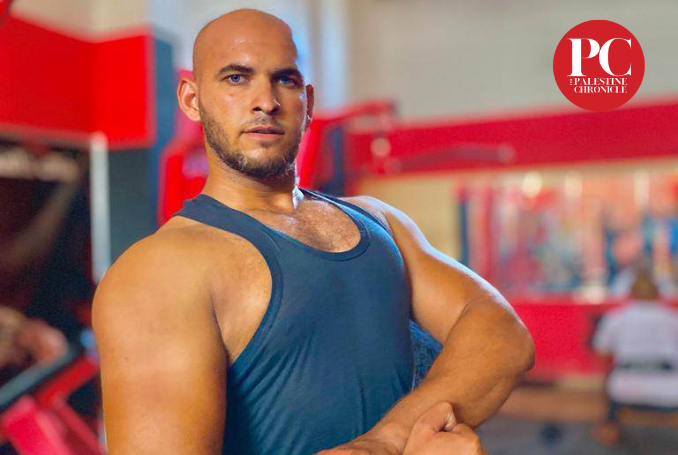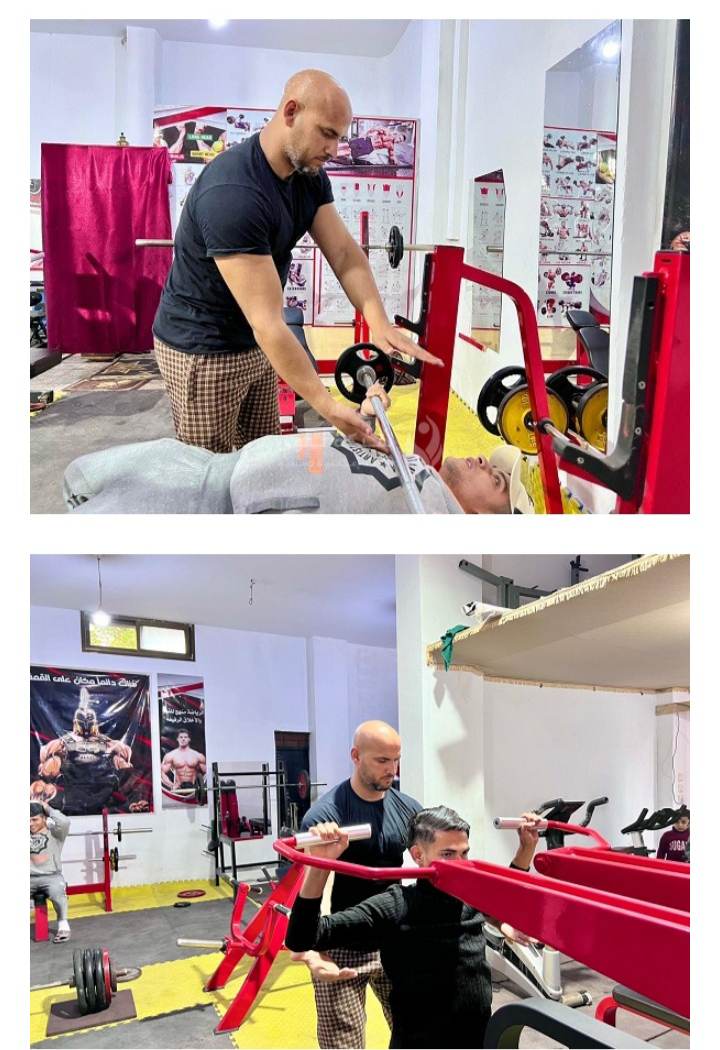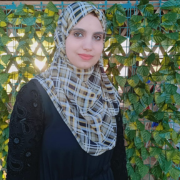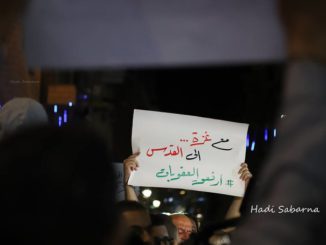
By Lama Jouda
For al-Asadi, sports served another purpose. It was a way to deal with the challenges and frustrations of life.
It is not easy being a deaf person in Gaza, a small, overpopulated region under a hermetic Israeli blockade.
Hatem al-Asadi, 27, is a computer technology graduate from the Islamic University of Gaza.
He has applied for jobs across a wide range of sectors related to his degree, but was rejected due to what he says is discrimination from potential employers.
According to al-Asadi, there is a lack of professional opportunities for disabled people looking for work due in the besieged Gaza Strip.
Unemployment in Gaza currently stands at 45%, according to the Palestinian Central Bureau of Statistics. For Palestinians with disabilities, the challenge of finding work is compounded.
Al-Asadi is a celebrated coach at the Power Lifting Abo Oday Gym in the southern city of Khan Younis.
But despite this, he has struggled to find employment in the technology profession he studied simply because he is a deaf person.
“It is really disappointing that professional employers are discriminating against disabled people. Society must support each other in order for it to function,” al-Asadi told the Palestine Chronicle.
Al-Asadi is a model of strength and perseverance.
Every day, precisely at 2 PM, al-Asadi gets ready, puts on his sports watch and goes to the gym in his tracksuit.
He is the first deaf person to become a coach and train young athletes at a Gaza gym. Despite being born with hearing impairment and other challenges of life in Gaza, al-Asadi completed his studies at the university, specializing in computer programming.

He is as passionate about computers as he is about sports.
For al-Asadi, sports served another purpose. It was a way to deal with the challenges and frustrations of life. This became even more useful when his quest for a job in his field failed.
He applied for many jobs in the government and the private sector and was rejected by all of them due to his disabilities.
With no other opportunities available, al-Asadi became a gym coach.
“I am passionate about sports, especially bodybuilding. I find myself in this sport,” he said.
Indeed, al-Asadi has won various championships in the field of bodybuilding and arm wrestling.
The owner of a local gym offered unemployed al-Asadi a job. He took it without hesitation, though still hoping to go back to his field of study.
To communicate with people, Hatem has used a mobile phone especially when he wants to talk to someone who doesn’t know sign language.
“I write on my phone when things get difficult in the gym,” he said.
Grateful for any work, al-Asadi’s pay is very low. “I struggle to cover my family’s basic needs,” he said.
In Gaza, however, a strong sense of community helps al-Asadi cope with life’s numerous challenges.
We spoke with al-Asadi’s colleague, Adly al-Assar. They met at the gym.
“I first met Hatem three years ago. He shared his story with me via Messenger. I liked his passion. He trained at the club despite being deaf,” al-Assar said. “He is very smart and better than a lot of athletes.”
For many young athletes at the gym, al-Asadi is a role model. He has an optimistic approach to life, always smiling, always happy.
Al-Asadi is now preparing for a Gaza-wide bodybuilding championship.
Al-Asadi’s wife, Kawthar, 27, is also deaf. She told us that she is proud of her husband, for his courage, tenacity and the fact that he is the first deaf person to become a professional coach in Gaza.
“I’m so proud of him. I love him so much. All people love and encourage him to keep going, ” she said.
But she complained that deaf people are socially disadvantaged in Gaza.
“Wherever we go, we are rejected and unaccepted just because we are deaf. Our lives can be so difficult,” she said.
“The only thing I want is to work like the rest of the people and my husband gets a job that allows us to meet our needs.”
People with Disabilities’ rights activist, Haneen Al-Sammak, told Palestine Chronicle that communication with society is a problem for deaf people.
“The availability of services is also restricted for deaf people and they don’t have enough opportunities for employment,” she said.
“Unfortunately, society views them as incapable and less than them”.

– Lama Jouda is a freelance translator, writer and content writer from Gaza. WANN contributed this article to The Palestine Chronicle.







